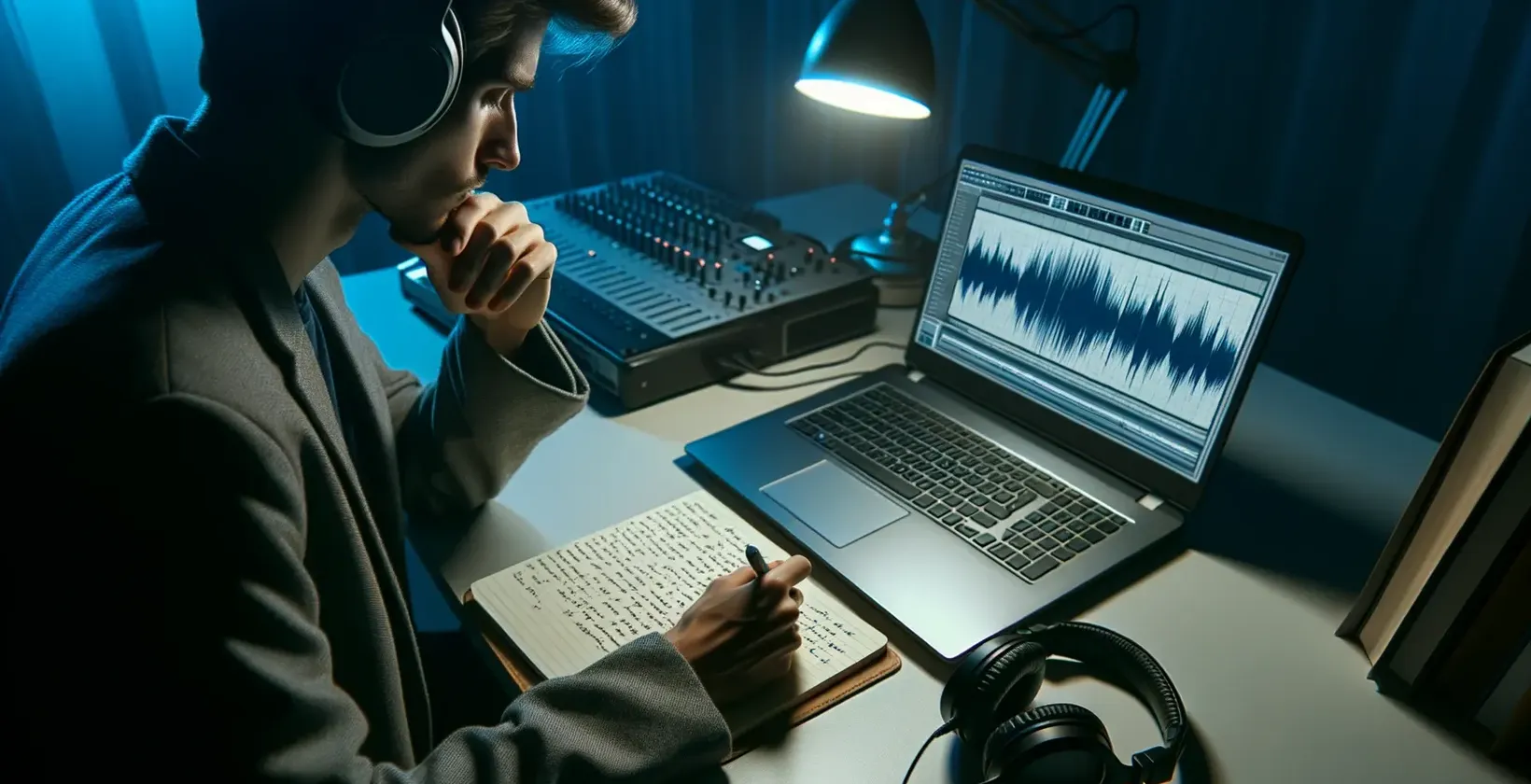Estimated reading time: 6 minutes
Remembering every lecture and critical piece of information can be overwhelming, especially when managing multiple different classes. One tool that students are utilizing is software that transcribes lectures into readable text. Understanding the typical process and benefits students and professors see are two important factors when it comes time to how to transcribe audio recordings.
What Does Transcribing Audio Recordings Mean?
Transcribing audio recordings involves taking an audio file and converting it to recording to text . This allows you to have a version of the conversation or lecture to go back and study. In the past, students would have to quickly write down every important detail and try to comprehend the information at the same time. This is not ideal as it opens the door to missing critical information and just going through the motions. As a student juggling multiple different tasks at once, you might not always have the time to write out detailed notes. New software programs, like Transkriptor, take this burden off students, giving them the tools needed to transcribe audio recordings with the click of a button.
What are the Different Ways I Can Transcribe Audio Recording?
Not only can you transcribe audio recordings in real-time, but you also have the ability to after the fact as well. Working with a software program gives you access to multiple different methods of transcribing audio recordings. The first option is to transcribe your audio in real-time. When you are sitting in class or listening to a lecture, simply open Transkriptor and let the software do the brunt of the work for you. The text that is transcribed saves you from rushing to write down every detail of the lecture or lesson. You can focus on what the professor is actually explaining instead of just going through the motions.

As technology advances, more and more courses are being switched to an online format. The shift may require you to transcribe audio that has already been recorded. In these cases, the same process will apply. Upload your audio file and then let an app handle the rest. A robust software program can sort through background noise to produce quality text that can help you in your studies.
What is the Easiest Way to Transcribe Audio Recordings Accurately?
When it comes time to transcribe audio recordings, there are a few tips to keep in mind. First, try and sit as close to the speaker as possible. Placing the microphone close to the source of the audio will ensure added clarity and reduce any noise from the background. However, don’t worry if the audio is not of the greatest quality. Transkriptor easily sifts through background noise to pick out the important text you need. Moreover, be sure your microphone has the features to effectively record audio. If you are using an old and outdated phone as your recording device, your audio quality might not be the best.
Benefits of Transcribing Audio Recordings in Academic Life?
Transcribing audio recordings comes with many benefits for students, and understanding guidelines of interview transcription . First of all, having a text copy of the lecture can aid in material comprehension. Some students learn better through re-reading the information. If the lecturer is speaking too quickly, you may miss out on key information. Transcribing audio recordings can help mitigate this risk and give you the best chance of success in your studies. In addition, transcribing audio recordings can help those with disabilities. Writing, hearing, and learning disabilities are all supported by a software program, such as Transkriptor, working alongside them.
In addition, classes with a high level of students or in a large lecture hall come with an abundance of background noise that can make it difficult for you to hear every important detail. Having a text copy of the lecture to fall back on reduces the risk of missing out on crucial details. Moreover, professors teach in a wide variety of places, subjecting you to accents that you might not be familiar with. Thick accents can hinder your comprehension level if you are struggling to understand what is being said. A clear-text copy of the lecture makes a stark difference in your learning level.
Transkriptor provides students different benefits, allowing them to take their studies to the next level. Transcribing audio recordings can be done with speed and accuracy whenever you need a recording converted. Instead of spending hours going back through lectures and taking notes, you can spend minutes transcribing your audio files. Furthermore, Transkriptor provides the text in an editable format, leading to the ability to make and edit the text to fit your needs.
Next Steps
All students benefit from the different advantages transcribing audio recordings gives them in their studies, especially when using a meeting recording app . The ability to have tangible text instead of trying to remember every detail of the lecture leads to a higher comprehension level and reduces stress surrounding the note-taking process, especially with in person meeting transcription . For more information on other ways working with Transkriptor can provide you and your studies, reach out to a team member.

